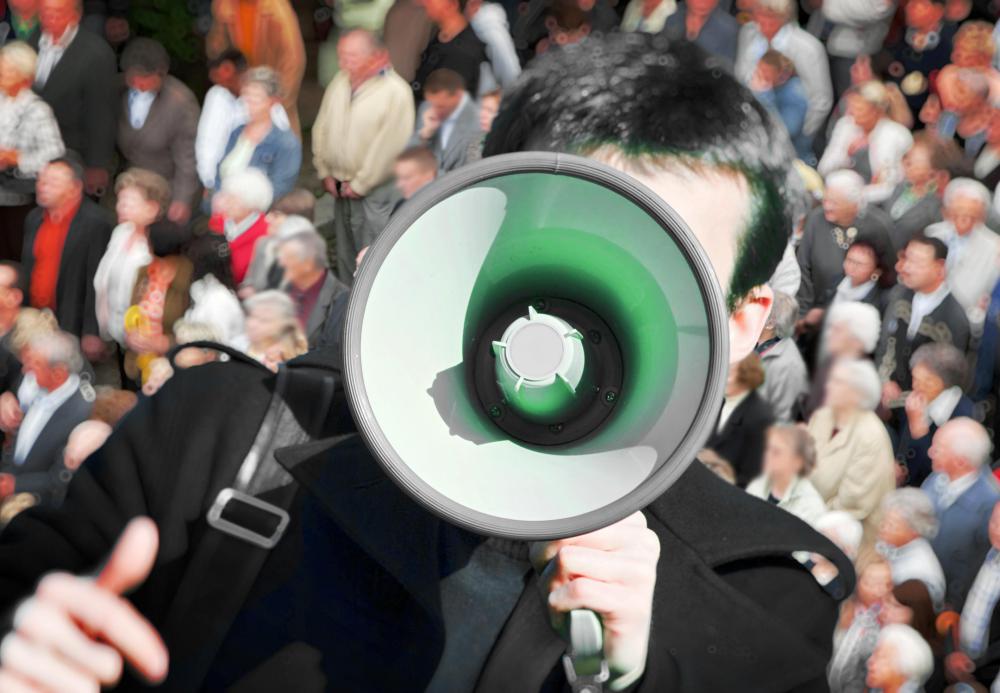At WiseGEEK, we're committed to delivering accurate, trustworthy information. Our expert-authored content is rigorously fact-checked and sourced from credible authorities. Discover how we uphold the highest standards in providing you with reliable knowledge.
What is Civil Disobedience?
Civil disobedience is a concept that has been written about, discussed, and practiced for centuries. It is a willful disobedience of a law by a person who has strong moral convictions that the law is wrong or immoral. There have been numerous instances where acts of civil disobedience on a grand scale have led to changes in the law, or changed public sentiment in such dramatic ways that new laws were demanded. One need only think of the protests led by Gandhi or by Martin Luther King, Jr. to see that while this can be an effective tool, it is not always effective and in especially repressive governments, even the mildest act of protest may result in incredibly harsh punishment.
Disobeying a law isn’t necessarily civil disobedience. A murderer can’t argue that he killed someone because he believed that laws against murder were morally wrong. This argument has been nearly extended when people have killed doctors who practice abortion, but it is always refuted as non-civil and repugnant.

Rather, civil disobedience usually means violating a law in a way that is nonviolent and doesn’t cause harm to other people or property. There are certain acts of civil disobedience that are on the borderline of becoming more violent, including things like destruction of labs or equipment used to harm animals that is advocated for by some hard-line animal rights activists. These are acts of protest certainly, but they are arguably not civil disobedience because they are destructive or threaten people.

Another distinction is the violation of a law that is not purposeful, but may be done in commission of an act of civil disobedience, which is often called an indirect form of protest. If people are told they can’t assemble in a specific area and they do so by first breaking into that area, the latter act would be indirect, and might lead to additional criminal charges. Most people are well aware that their blatant acts can lead to arrest, and that they may face criminal charges as a result of their actions. Leaders of well-organized protests usually instruct people to not resist arrest and they may even review with protesters what type of charges they might expect to face for breaking the law. In most democratic countries, these are misdemeanor charges.

Countries with oppressive governments tend to be most threatened by civil disobedience and they may exact harsh penalties when people do things like collaboratively protest a law. Organizations like Amnesty International® track jail sentences of those who have protested in countries like this, and they report on the many who are imprisoned for life or face execution as the result of protest. Harsh sanctions against civil disobedience do not deter the most determined reformers, and the strong sense of improving their countries, and the spark of hope that often marks these acts of disobedience testify to basic desires in many people to pursue what they consider to be laws governed by a basic morality.
AS FEATURED ON:
AS FEATURED ON:













Discuss this Article
Post your comments